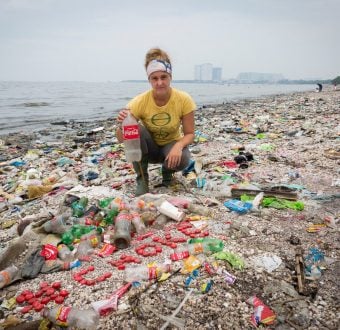In a letter sent today to Dow Chemical’s CEO, Michael Parker and
board Chair, William Stavropoulos, a group of investors urged Dow
Chemical to take responsibility for the toxic gas leak in Bhopal,
India that killed thousands of people. The letter arrived as the
chemical industry gathered in New York for the two day 13th annual
Salomon Smith Barney Chemical Conference where Parker was scheduled
to give a speech. In the letter the group of socially responsible
investors called on Dow to “…continue dialogue with
representatives of Bhopal citizens groups to take their claims
seriously and to work towards a mutually acceptable solution.” With
values at $13 billion the investors signed to the letter included
Trillium Asset Management, Domini Social Investments, Calvert
Group, Ethical Funds, Green Century Capital Management, As You Sow
Foundation, Harrington Investments, Progressive Asset Management
and Walden Asset Management.
“As Dow CEO Michael Parker discusses the future of the chemical
industry in America, investors want Dow to take more responsibility
for one of the most tragic legacies of the industry’s past,” said
Steve Lippman, Senior Social Research Analyst at Trillium Asset
Management, which specializes in socially responsible investment.
“At a time when the public is especially concerned about corporate
responsibility, investors expect Dow to address the ongoing
environmental and health concerns in Bhopal, where children born to
survivors suffer debilitating illnesses.”
The 18-year campaign to pressure Union Carbide and its new owner
Dow escalated over the past few weeks. On November 25, Greenpeace
activists trained in hazardous material handling arrived from
around the world to lend their expertise to local survivor
organizations but all were beaten and arrested by local police.
Then on December 2, activists from the International Campaign for
Justice in Bhopal delivered contaminated soil and water from the
site to Dow Chemical’s headquarters in India. In an unprecedented
move, the Finance Director of Dow India accepted the materials and
stated on public record that the company should address the
concerns of the Bhopal survivors, which include health,
environmental and compensatory issues associated with the
disaster.
In February 2001, Dow Chemical
purchased Union Carbide, who owned the pesticide plant in Bhopal at
the time of the disaster in 1984. Dow recently settled Union
Carbide lawsuits on asbestos in the United States, part of the
liabilities it assumed as a result of the Carbide buyout, but it
has refused to take any responsibility for the Bhopal tragedy.

